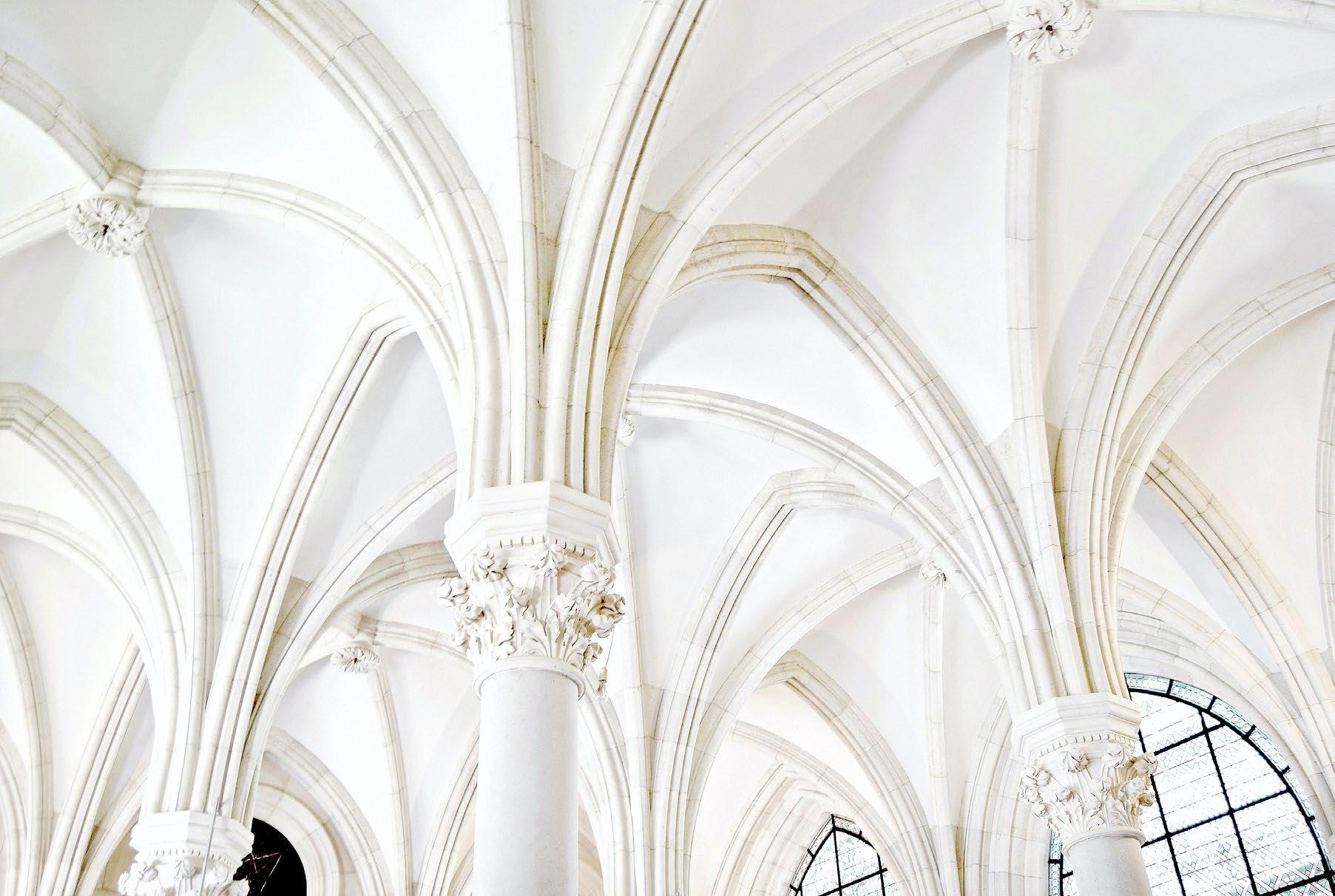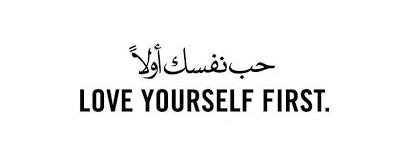
8 minute read
The Great Deconstruction
By: Nicole Lockhart
In college, I had a particular group of friends who nearly became the entire collegiate experience itself for me. I say nearly because by the end of my three-year undergraduate experience I had completely removed myself from the group, only cordially associating with the gang of friends I used to do everything with. We did the typical all-nighters but instead of studying books, we were digesting the Word of God, praying into the wee hours of the morning, and corporately fasting for breakthroughs or outpourings of the Holy Spirit. There was a gospel choir rehearsal on Wednesdays, church on Sundays, Bible Study on Thursdays, and fellowshipping every day in between. We crusaded the campus with more evangelical fervor than the other Christian groups, who were content to merely gather a few times a quarter. We had become known as a Holy mob, unbeknownst to us, and I was at the epicenter dating the golden disciple--the future preacher.
Advertisement
Before undergrad, I wouldn’t say that I had a lot of friends. But rather I always looked to my friends for a sense, not of belonging, but myself. I used the more developed identities of others, trying them on like lumpy sweaters masking whatever felt most like myself though less-accepted. Yet, in this misguided path toward self-discovery, I have always feared group mentality. My high school pastor at Point Harbor Community Church in southern Virginia made a joke once that I never forgot. “Christians tend to group up. And once they’ve accepted you into the fold, it becomes an us four and no more mentality.” I imagined a group of Christians all linked in arms, heads huddled in the center, feet dancing, keeping a fifth person from entering into their ranks--or worse their churches. I saw the same beginning to happen with me and my friend group, becoming notorious not only for the cliquish behavior but also for prudence, and judgment, and self-righteousness. Having compassion on whom we wanted to have compassion and putting ourselves in the seat of mercy or salvation. When I saw that I was being heralded for the kind of behavior I had always despised in others, I tore down the walls of piety, broke up with my boyfriend, and began a journey of deconstructing my spirituality. Holding my beliefs with an open hand instead of a swinging fist. exclusivity. In college, I satisfied my curiosity in a philosophy class where I connected with a friend through freedom of thought. She and I both were campus tour guides- -where we were encouraged to welcome all--and shared a love for musical theater. A few years ago, after the dust had already begun to settle on our graduation caps, I noticed a change in her Facebook, and though we had lost touch since graduating, I could tell that I was witnessing a monumental shift in her life and the lives of those around her. She came of age in purity culture and though her faith experience was well-loved by her, Brenna began to question some of the beliefs around homosexuality. Her budding deconstruction was met at first with shame and often dismissed by her Sunday counterparts. Yet there remained a love for God and a desire for ministry, which led to better responses to her questioning in seminary. Thanks to the internet, she was able to find similarly-minded people who were practicing Christians and advocates of the LGBTQ community. But it is fine for a minister of the gospel to champion the LGBTQ community and not be Queer herself. Brenna, who is currently in a relationship with cis-gender man, identifies as Queer. In certain terms, she has been asked to pause her ordination in the Methodist church, a goal for which she has studied and fulfilled many requirements for over the years. She would’ve been ordained this summer.
Deconstruction, as defined by the Liturgist Podcast’s Hillary McBride, is pulling apart the stories that we were told to believe. These stories, consequently, are also the ones that without careful examination can pull us apart. It takes careful sifting and thoughtful examination of what it is we have never questioned and yet have held to be true. Every action is the consensus of a belief. Deconstruction is not an excuse to criticize. Although we may find we have criticisms about a belief system, deconstruction is instead an invitation to make clear the way of understanding. It’s the “why” we as children were always searching for when precocious pesterances leaped forward. If our family origins were people of religion, some may have tried to offer placating fillers for the gaps in which faith is designed to be the substance or evidence. But I’ve often wondered, what if faith is the gap some of us need filled?
If we can eliminate the social pressures of spirituality and curiously take a belief system through its evolutionary process, we may find ourselves outgrown or enlightened to new ideals. To those that use the basis of a particular faith as a foundation or starting place for discovering what one believes, there emerges a path of continuation. Religion was never meant to have an ending point of definitive knowing. It is a path that upon reaching its conclusion, will unleash more roads that lead you onward. Spirituality is a process of evolution that does not culminate in revelatory laurels, but rather endless streams perpetual freedom. The only proper response to questions of faith is deeper more resonate questioning.
Home renovation television is still having its moment. We as an American society like to see the tearing down of something old and the reimagining of the same space into something new. Much less popular is the hunting for a new home; or perhaps the more difficult, the building of a home on a plot of land. What we enjoy in our home television shows is I believe evidence of what we experience in our reconstructing. It’s okay to leave the framework of a home in good enough shape and use it to build the framework of a greater house. As Jesus says, “A foolish man” builds his house on the sand. But he who has a strong foundation can withstand the winds, rains, and waves. When your framework of faith has largely worked for you, there is no need to destroy the entirety of what you believed and build a new one. Similarly, if your spiritual journey begins without a framework for the belief you may find some helpful blueprints in those already constructed.
Perhaps most threatening about deconstructing one’s spirituality and reconstructing your beliefs, is the loss of community. I still think fondly of that first group of friends, the camaraderie of like-mindedness is one that has been a part of human existence since we decided some of us were hunters and others of us were gatherers.
They’ve all moved on, replacing me with some freshmen who too were looking to belong. Some married--though none to each other--many enrolled in seminary and my ex- is well on his way to pastoring. When I reconstructed my belief system, something I’ve had to do a few times, I risked losing the ability to ever find community amongst people I wasn’t “too this” or “not enough that” for. I’ve been unfollowed by people who treated me like friends, endured the fake smiles, and eventually isolated myself from anyone in the church who couldn’t honestly ask or answer the question “How are you?”
So how do we create communities of thought and belief for ourselves? Some of my Jewish friends have taken the approach of being religious in heritage and in some tradition, but not practicing the tenants overtly in their daily lives. This take-fromit-what-you-need mentality is one way to continue being part of the community of faith without being restricted in your evolution as a spiritual being. For instance, a young Muslim woman is given the personal choice to wear the hijab or not when she comes of age. She may come of age again, choosing to de-veil at a later point in life. It is neither political nor religious, but a personal gleaning from her own beliefs about modesty as freedom of choice. Most Muslim women respect one another in their decision to wear or not wear the hijab. It is as if the collective says, you made the choice that was right for you, and I will make the choice that is right for me. Or maybe we’re all in search of spaces like the prophet Bob Marley speaks of, where “Man is a universe within himself.” and perhaps what we are discovering is not an external God--but to know oneself, or at very least to know what it is that we believe.
Is God okay with our questions? Absolutely. And he/she/it/they also ask questions of us. The conversation between oneself and the Divine is the company we keep on the path. One of my favorite passages of scripture is when Jesus asks his disciples, “Who do you say that I am?” As we continue to evolve in our earthen form perhaps that is the question we are all really seeking to answer. We are seeking to define the person or persons that have inspired this sense of wonder and yet fear in us. It is the fear of God that has erected great cathedrals and sent many a prophet into the desert. And in that same spirit, we are called to build, to sit with ourselves and our inward ramblings, wandering in the prodigal pilgrimage towards a destination we do not know. And on the unfolding journey may you take comfort in the uncertainty as you ask yourself...
“What do I need on my way to growth?”









